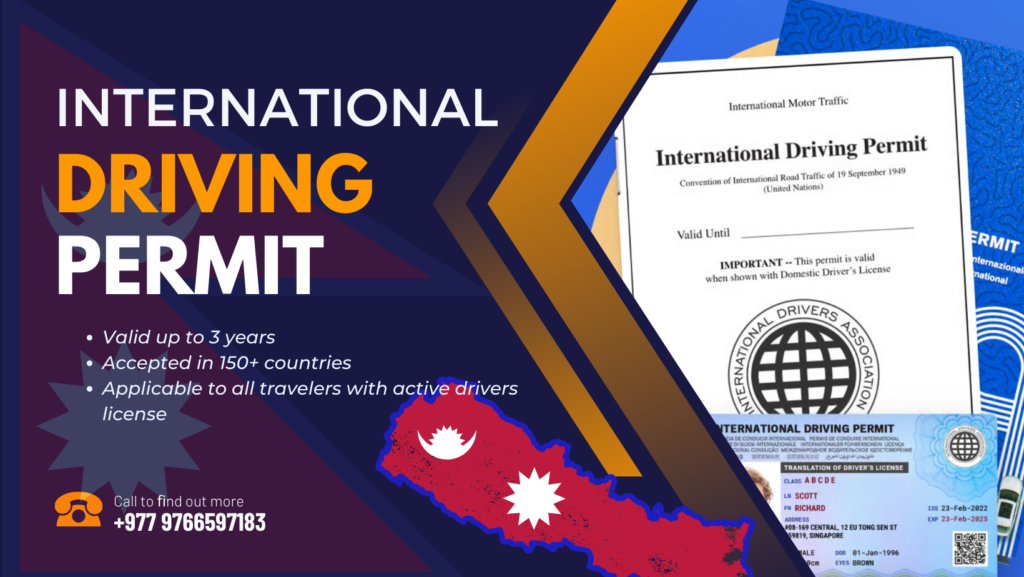In today’s digital age, the National Identity Card (NID) has become a crucial document for every Nepali citizen. But what exactly is it, and why is it necessary? Let’s delve into the details.
1. What is the National Identity Card?
The National Identity Card is an electronic smart card that includes the personal (demographic) and biometric details of Nepali citizens. It features a secure chip and serves as a multi-purpose certificate of national identity.
2. Why is the National Identity Card necessary?
With the implementation of the National Identity Card, it becomes mandatory to present it to receive any services or benefits provided by the state. It is recognized as the primary basis for public services and as proof of a person’s identity.
3. Required Documents for National Identity Card
To obtain a National Identity Card, the following documents are necessary:
- Original certificate of Nepali citizenship
- Original migration certificate if you have migrated (if the permanent address differs from that mentioned in the citizenship certificate)
- For married individuals, the citizenship certificate should include the spouse’s name, otherwise, the original marriage registration or certificate of relationship is required
- Official documents that indicate the birth date if not mentioned in the citizenship certificate (such as birth certificate, educational certificates, passport, or pension documents)
- Any other documents that confirm your details
4. Eligibility for National Identity Card
Individuals who are 16 years or older and have a Nepali citizenship certificate are eligible to obtain the National Identity Card.
5. Can minors receive the National Identity Card?
Currently, the National Identity Card is distributed based on the citizenship certificate. In the second phase, minors, non-resident Nepalis (NRNs), and foreign nationals residing in Nepal for a specified period will also receive the card. This will be announced through a public notice before the commencement of the second phase.
6. How to obtain the National Identity Card?
Citizens can visit the District Administration Office, National Identity Card registration stations at the Area Administration Office, or their local ward office when the registration campaign is active to register their details. After the collection of details, the National Identity Card can be obtained.
7. Online Application Process
To fill out the form online, visit the Department of National ID and Civil Registration’s website donidcr.gov.np and follow the instructions provided.
8. Details included in the National Identity Card
The National Identity Card includes various personal and biometric details.
9. Biometric Collection for Special Cases
If a person has missing fingers or is visually impaired, their biometric details are recorded with specific remarks during the registration for the National Identity Card.
10. Birth Date Verification
If the birth date is not clearly mentioned in the citizenship certificate, other official documents such as educational certificates, pension documents, or the date on the passport will be used to establish the birth date.
11. Inclusion of Spouse’s Surname
If the citizenship certificate does not include the spouse’s surname, it cannot be included in the National Identity Card. The citizenship certificate must first be amended to include the spouse’s surname.
12. Photo Requirements
According to the National Identity Card Procedure 2078, photos taken for the card should not include cosmetic makeup, hats, veils, or any accessories as they can obscure the face and do not meet international standards.
13. Changing Permanent Address
If the permanent address is different from the one mentioned in the citizenship certificate, a government-issued document like a migration certificate or proof of residence can be used to update the address. If the address has changed due to local restructuring, the new address can be updated even without such documents.
14. Mandatory for Government Services
Once implemented, the National Identity Card will be required for various state services such as obtaining a passport, social security benefits, relief and grants, voting, property transactions, event registration, opening bank accounts, and mobile SIM card purchases.
15. Information Security
The information stored in the National Identity Card is kept confidential by the Department of National ID and Civil Registration and is only accessible under special circumstances.
16. Requirement for Passport
A National Identity Card number is mandatory when applying for a passport.
17. Unique Identity Number
Each person is assigned a unique 10-digit National Identity Card number by the Department of National ID and Civil Registration.
18. Obtaining the Unique Identity Number
After registering personal and biometric details at a registration station, the National Identity Card number is provided immediately at district/area administration offices, or later via SMS for ward-level campaigns.
For more details on your National Identity Card number, send an SMS to 30001 with your application number or contact the call center at 01-5970449.
19. Unacceptable Documents
Unclear, self-corrected, damaged, torn, or photocopied documents are not accepted. Only original and clearly legible documents are accepted for registration.
20. Collection of Printed National Identity Card
Once printed, you will receive an SMS notification to collect the card from the registration point.
21. Continued Use of Citizenship Certificate
Both the Nepali citizenship certificate and the National Identity Card have constitutional recognition and can be used as per the prevailing laws.
22. Foreign Spouses
Nepali women married to foreign nationals can obtain the National Identity Card as long as they have not renounced their Nepali citizenship.
23. Personal Collection Required
The National Identity Card must be collected in person to verify biometric details.
24. Correcting Details
Any errors or changes in details on the National Identity Card can be corrected by submitting a request at the District or Area Administration Office.
25. Lost or Damaged Cards
If the National Identity Card is lost, damaged, or unusable, a duplicate can be issued by submitting a request with the relevant office along with a fee of 500 NPR.
26. Payment of Fees
The fee for a duplicate card can be paid at any branch of the Nepal Bank of Commerce.
27. Changes in Appearance
If a person’s appearance changes significantly after the photo is taken, it will not cause issues due to the additional biometric data stored in the card.
28. False Information
Submitting false information to obtain the National Identity Card can result in imprisonment for 2-5 years and a fine of 20,000-50,000 NPR.
29. Deceased Individuals
The National Identity Card of deceased individuals is updated in the records, ensuring their details remain in the system for historical data.
30. Conditions for Cancellation
The National Identity Card can be canceled if false information is provided, it was obtained in violation of the National Identity Card and Registration Act, 2076, or if the individual is no longer a Nepali citizen.
31. Inquiry About Status
For any inquiries or if the mobile message is not received after applying, contact the provided helpline numbers or use SMS and Viber/WhatsApp services.
32. Data Security
The collected data is securely stored in a Virtual Private Network (VPN) within the National Information Technology Center (GIDC) and is not accessible outside the Ministry of Home Affairs complex.
By understanding these details, citizens can better navigate the process of obtaining and using their National Identity Card, ensuring they can access essential services and benefits seamlessly.

